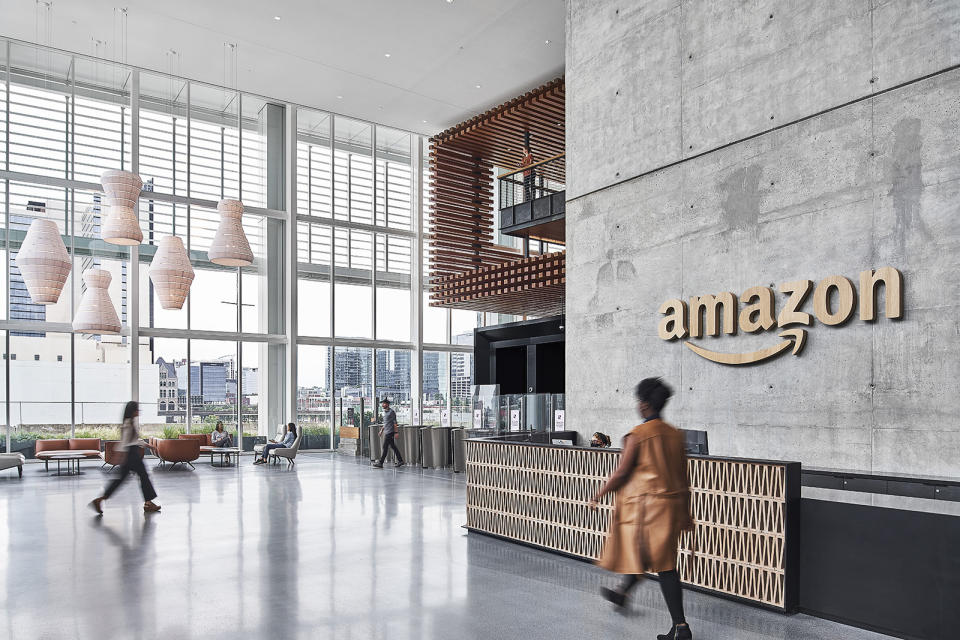When Amazon (AMZN) announced its expansion into Nashville, including a new headquarters there, the move marked the single largest jobs commitment made by a company in Tennessee’s history.
The data shows the tech giant’s arrival has made a difference in the economy too.
“Like any economist, I was skeptical before I saw the results,” said Vikram Pathania, one of Amazon’s principal economists. “You see employment go up, you see income go up, and you see these indicators move positively.”
In 2023, Amazon’s investments contributed $4 billion to Tennessee’s gross domestic product and supported 15,000 indirect jobs, according to data provided by the company. Additional findings show that when the company moves into a county, that county can expect its employment-to-population ratio to increase by 1.7% on average.
The company touted that for every 10 jobs that it created directly, nine additional jobs were indirectly created as well.
“The very act of building a new warehouse means hiring local construction companies, and so sometimes you start to notice the effects by year one, definitely by year two. And by year three, the numbers are coming through,” Pathania said. “But there’s also an indirect channel because we are employing people and putting wages in their pockets. Those people are then going and spending that money at local businesses.”
Amazon’s growing network
At the company’s Delivering the Future event held this week in Nashville, Amazon showcased its innovations — from artificial intelligence to robotics — and highlighted its presence within the community.
“We’re not just creating jobs — we’re creating different opportunities and pathways that make us a part of the community and not just a corporate citizen within the community,” Amazon’s vice president of worldwide economic development, Holly Sullivan, told Yahoo Finance over the phone.
When Amazon first announced plans to open its second North American headquarters (HQ2) in 2017, cities across the US set out to entice it to invest in their communities.
The e-commerce giant initially announced its HQ2 would be split between New York City and Arlington, Va., which offered Amazon $750 million in state taxpayer subsidies. However, the company canceled the New York location after backlash from local grassroots organizers, residents, and politicians, who opposed the billions in government incentives offered to the company.
A year later, Amazon announced plans to invest in Nashville instead, with the goal of creating nearly 5,000 jobs in the music capital. Nashville’s then-mayor, David Briley, hailed it as fantastic news for the city, while the governor called it a “game changer” for Tennessee.
“We want to go into locations that support us and support that job growth,” Amazon’s Sullivan said. “Nashville is a great example of this. We started with our fulfillment operations, and now we have a major corporate office with over 3,000 employees.”
Amazon completed construction of its office last year, providing 1 million square feet of space for its employees, whose roles range from technical jobs, such as software development engineers, to providing financial and business services.
Amazon has rapidly expanded its global footprint in recent years. In 2020 alone, the e-commerce giant added 300 new warehouses, according to data gathered by Consumer Reports. MWPVL International, a supply chain and logistics consulting firm, found that Amazon operates over 1,300 active locations in the US, occupying 435 million square feet.
Amazon’s booming warehouse construction hasn’t been well-received by everyone, and some municipalities have placed restrictions on building Amazon’s logistics network, citing concerns over pollution, construction, and congestion.
But when it comes to where Amazon will expand next, the company is focused on technological innovation. Priorities for the business — think artificial intelligence — will drive the thought process about the locations it invests in. As of now, the company has plans to spend more than $100 billion over the next decade on data centers, according to the Wall Street Journal.
“Cloud computing is a big investment for us, particularly with artificial intelligence,” Sullivan said.
Click here for the latest technology news that will impact the stock market
Read the latest financial and business news from Yahoo Finance








